Mayor Murial Bowser announced a new anti-crime bill proposal last week that attempts to slash the District’s highest crime rate in decades.
Some Ward 1 residents are concerned that the Addressing Crime Trends Now Act bill includes legislation that might make their communities less safe.
Andrew Ferguson, an American University’s Washington College of Law professor, says the bill does little to address the growing crime rate’s root causes.
“People are angry about crimes that arise from poverty, community neglect, and substandard educational opportunities, and instead of addressing those root causes, the Mayor is just trying to police them,” he said.
“We do not need police with more power. We need investment in the young people of D.C. that are living in poverty and see few economic, social, or educational opportunities to escape that reality,” Ferguson said.
Bowser’s new bill brings back some of the department’s most controversial former policing practices, which were outlawed in the wake of George Floyd’s murder by Minneapolis police officers, including:
- Allowing officers to use neck restraints during arrests.
- Allowing police vehicles to pursue other vehicles at high speeds.
- Enhanced sentencing for committing a crime while wearing a mask.
- Allowing officers to review their own body camera footage before writing a crime report.
- Creation of drug-free enforcement zones.
Neck restraints
The proposed bill would loosen restrictions on what is considered “excessive force” during a neck restraint.
Under the new legislation, officers can restrict someone’s movement by their neck without it being considered an excessive use of force.
Previously, the law prohibited restraints restricting one’s “movement, blood flow, or breathing,” but the new legislation strikes “movement” from the clause.
A restraint by the throat is still prohibited.
Thomas Roades, a Ward 1 resident, says the difference between “throat” and “neck” makes little to no difference.
“The exception to the ban on chokeholds, as I understand it, is intended to allow officers to grab a person’s neck to restrict their movement, but not their breathing,” he says.
“I cannot imagine how an officer could do one of those things without the other. This is dangerous, allows unnecessary police brutality, and would not do anything to improve public safety.”
In 2021, the American Academy of Neurology adopted the official position that the use of any neck restraints by police should be considered, at a minimum, a use of deadly force.
“Furthermore, because there is no amount of training or method of application of neck restraints that can mitigate the risk of death or permanent profound neurologic damage with this maneuver, the AAN recommends prohibiting the use of neck restraints,” their statement reads.
Using chokeholds has been limited since 1985 with the Limitation on the Use of Chokehold Act, which Bowser’s new proposed legislation will amend.
In May 2022, President Biden signed an Executive Order that required all Federal Law Enforcement Agencies to adopt policies that banned chokeholds and carotid restraints unless deadly force is authorized.
Since 2020, 24 states have restricted or banned the use of chokeholds.
The Wash contacted MPD for a comment on neck restraints multiple times through email and phone calls. Each time, the department declined to comment and directed all questions to the Office of the Deputy Mayor for Public Safety and Justice.
Pursuit of vehicles
Other new policies include allowing officers to engage in some vehicular pursuits, commonly known as police chase, and making it illegal to wear a mask while committing a crime.
Izzy Johnson, a Columbia Heights resident, said allowing vehicular pursuits is a public safety issue.
“I worked for Vision Zero at DDOT, and I confidently believe that police chases would only lead to more serious and fatal crashes. DC already has a high traffic fatality rate per capita, and this will only make it worse,” she said.
Johnson also says the anti-mask measure does more harm than good. 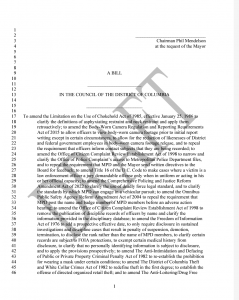
“Outlawing wearing a mask while committing a crime is an inelegant way to increase prison and jail sentences for nonviolent crimes,” she says.
“Harsh sentencing is not a research-supported crime deterrent. All this does is keep teenagers locked up long enough to become career criminals.”
Some residents expressed the belief that these policies are enacted to help police officers rather than the general public.
Draft proposal D.C. crime bill
The MPD is facing its most significant employee shortage in 50 years; the department and the police union have voiced their concerns that the stricter policies enacted after Floyd’s murder limited them in their jobs.
Bowser’s new bill gives leeway to some of those policies, hoping to make the department more attractive to potential recruits.
At a press conference last Monday, the mayor spoke about these attempts.
“We have to have a policy environment that allows us to recruit and retain officers and not lose our officers to the surrounding jurisdictions because our policy environment makes them scared to do their job,” she said.
Review of body cameras
The proposed legislation will also allow officers to review their body camera footage in most cases before writing a report, increasing the likelihood of someone getting prosecuted for their crimes, according to the MPD police chief.
The American Civil Liberties Union has heavily criticized this policy.
The organization states that allowing officers to view footage before writing reports is a bad investigative practice and presents a double standard to how officers expect witnesses to testify before viewing evidence.
They also state that it enables lying, undermines the legitimacy of investigations, and allows cross-contamination of evidence that might hinder the search for the truth.
The ACLU’s complete statement can be viewed here.
Drug-free zones
The bill also allows the police department to implement temporary drug-free zones in attempts to reduce the number of “open-air drug dealing.”
When The Wash inquired about the scope of what officers can do inside one of these zones, MPD refused to comment three times, referring questions to the deputy mayor’s office.
The deputy mayor’s office responded to questions by providing a link to the bill draft.
A drug-free zone is an area that prohibits congregating in a group of two or more individuals for the purpose of using, purchasing, or selling illegal drugs.
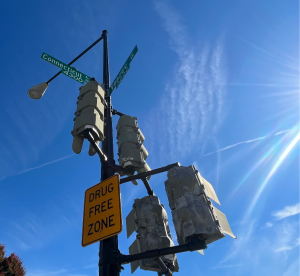
In order for an officer to ask people to disperse from the area, they must “reasonably believe the person is congregating for the purpose of participating in the use, purchase, or sale of illegal drugs.”
The bill says officers can reasonably assume this behavior based on the following circumstances: a person’s conduct, information from a reliable source, a person is identified as a member of a gang, a person has “no other apparent lawful reason” to congregate in that area, or a person and/or their vehicle is known to police to be an unlawful user or seller.
According to the draft, the Chief of Police can declare any public space a drug-free zone for 120 consecutive hours.
The mayor’s new bill only needs seven council votes to pass.

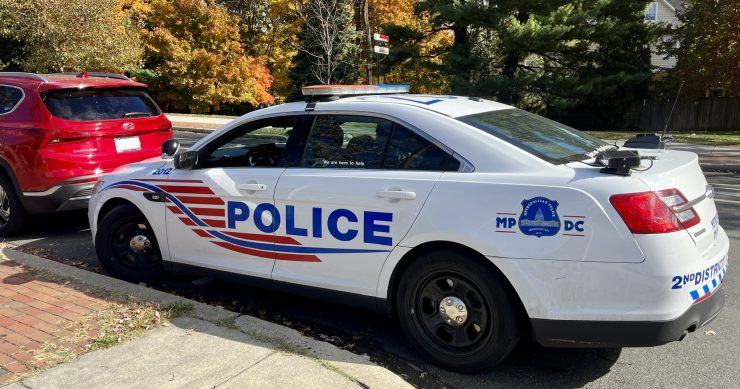
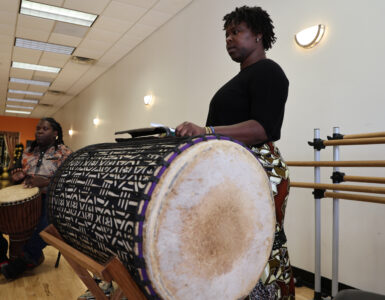
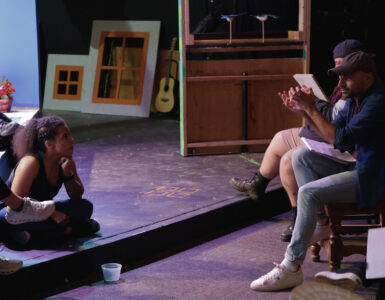











Add comment